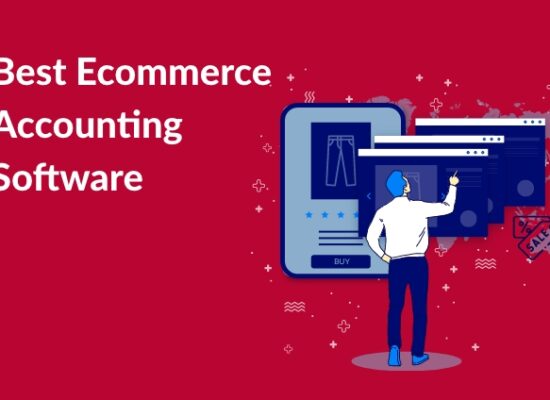
You’ve got your business and products and desperately want your business to conquer the online market. But where do you start? That’s when you take the help of e-commerce platforms – the digital playgrounds where your dreams of selling stuff online come true.
And, there’s this secret ingredient to make your website shine. Yes, that is, SEO, or Search Engine Optimization, is the key to being noticed in the vast ocean of the internet. It’s like telling search engines, “Hey, I’ve got something awesome to offer!” Now, e-commerce platforms play a crucial role here. They’re the trusty steeds that carry your products into the spotlight.
Read More : How to start an Ecommerce Business?
What is the Importance of SEO for Ecommerce?
SEO is like giving your online shop a spotlight. It helps your store show up when people search for stuff online. Why does that matter? Well, more visibility means more visitors, which can increase sales. Simple math, right?
Now, the big question is – what are the Best Ecommerce Platforms for SEO? We’ve rounded up six contenders that could be your online store’s best buddy:
6 Best Ecommerce Platform for SEO
Shopify:

Setting up Shopify stores is like the MVP (Most Valuable Player) of the e-commerce game regarding SEO. With Shopify, you can tweak your titles, descriptions, and URLs to ensure they’re all search engine-friendly. Additionally, Shopify creates a sitemap for you automatically, which makes it easier for search engines to index and crawl your content.
Features:
- Anyone may easily manage their online stores with Shopify’s incredibly user-friendly interface.
- It has various customizable templates that match your brand.
- Shopify integrates seamlessly with secure payment gateways, ensuring safe transactions.
- Shopify’s mobile friendliness ensures a smooth and enjoyable shopping experience.
Costs:
- Shopify cost depends on monthly subscription fees based on the plan.
Pros:
- Easy setup and user-friendly interface.
- Built-in SEO features like customizable title tags and meta descriptions.
- Mobile responsive design for better user experience.
- Fast loading times improve SEO ranking.
Cons:
- Limited control over technical SEO elements.
- It is costly if relying heavily on paid apps and plugins.
- Platform dependency may restrict scalability options.
Read More: What is Shopify and How It Benefits Your Online Business?
WIX:

When it comes to setting up your online store and wanting it to shine on search engines, WIX is the best choice! It’s quite intuitive. It’s not necessary to be an IT whiz to make your store visually appealing and search engine optimized. If you’re looking for an easy, SEO-savvy, and fast e-commerce platform, WIX is your go-to friend!
Features:
- It enables you to sprinkle keywords all over your site effortlessly. With relevant keywords, your store is easily visible on the list.
- WIX sites are always mobile-ready.
Cost:
- WIX cost depends on the subscription plans. The prices can range from around $14 to $39 per month for regular websites and higher for eCommerce plans.
Pros:
- WIX makes optimizing your site for search engines simple.
- It provides capabilities like customized URLs and meta tags that are beneficial to SEO.
Cons:
- Some aspects of SEO are restricted due to WIX’s template-based design.
Read More : Top Ecommerce Tools Every Entrepreneur Should Use
Squarespace:

Squarespace is your go-to buddy if you’re looking to sell stuff online and want your products to show up when people search for them on Google; why? Squarespace helps make sure your site pops up high on the list. Why? As a result of its SEO-focused construction. Squareespace is skilled at optimizing your website for search engines, resulting in a higher ranking. And when you’re higher up on that list, more people see your stuff, which means more chances for sales.
Features:
- It provides gorgeous layouts that give your website a polished, expert appearance.
- It’s an all-in-one solution, combining website building, hosting, and domain services in one easy-to-use platform.
- The platform includes an easy-to-use drag-and-drop editor that eliminates the need for coding when creating websites.
- Squarespace provides 24/7 customer support.
Costs:
- Affordable plans start at $12/month.
Pros:
- Easy for beginners to use.
- Stylish designs to showcase products.
- Built-in tools to optimize content.
- SSL is included for secure transactions.
Cons:
- Less flexibility compared to some platforms.
- Some tools may require higher plans.
Weebly

Weebly’s got your back big time when it comes to SEO. This platform makes optimizing your store for search engines super easy. With Weebly, you can customize things like your website’s title, description, and URL. These might sound like fancy terms, but they help search engines like Google understand what your store is all about.
Features:
- Weebly has built-in tools like email marketing and SEO optimization to help you reach more customers.
- It makes your website mobile and tablet friendly, so everyone who visits will have a smooth experience.
- Weebly’s e-commerce integration lets you easily set up an online store, manage inventory, and accept payments – all without leaving the platform.
- Weebly’s App Center is like a digital store where you can add extra features to your site with just a few clicks.
Cost:
- Weebly costs typically range from around $6 to $29 per month.
Pros:
- Great for beginners with drag-and-drop features.
- Built-in SEO tools that help optimize your site for search engines.
- Mobile-friendly: Sites look good on phones, which Google loves.
Cons:
- You can only tweak some things for SEO, like with WordPress.
- Sometimes, slow loading times hurt SEO.
- Not as flexible as other platforms.
Woocommerce:

WooCommerce is like the superhero of e-commerce when it comes to SEO! It gives you all these excellent tools to optimize your store for search. You can tweak your product descriptions, titles, and URLs to include those magic words people type into Google when searching for stuff to buy.
Features:
- It’s an open-source WordPress plugin that allows you to start selling online.
- WooCommerce lets you customize your online store to match your style.
- It smoothly integrates with your WordPress site, turning it into a powerful e-commerce platform.
- WooCommerce has everything – from inventory management to secure payment options; it’s like a toolbox filled with everything you need to run a successful online store.
Costs:
WooCommerce cost is free, but you’ll need to pay for hosting which comes to $10 to $20 per year and possibly premium plugins for advanced SEO features.
Pros:
- Flexibility to optimize SEO according to your needs.
- Seamless integration with WordPress for content marketing.
- Wide range of plugins to enhance SEO efforts.
- Access to detailed analytics for tracking SEO performance.
Cons:
- Requires some technical knowledge for optimal SEO setup.
- Costs can add up with premium plugins and expert help.
- It may experience slower site speed if not optimized properly.
BigCommerce:

BigCommerce is your go-to buddy for Ecommerce platforms, especially regarding SEO. BigCommerce has all the enchantments to make your products appear when someone Googles them.
Features:
- It comes equipped with built-in tools to help your website shine in the search engine bar.
- There are no transaction fees on top of your regular plan.
- Whether your customers shop on a laptop or a smartphone, BigCommerce has responsive templates to ensure your store looks fantastic on any device.
- BigCommerce offers 24/7 customer support, ensuring you have help whenever you need it on your ecommerce journey.
Costs:
- BigCommerce cost Plans start at $29.95 per month.
Pros:
- User-friendly interface for managing SEO elements.
- Robust technical infrastructure for fast site speed and reliability.
- Dedicated support for SEO optimization.
- Seamless integration with other marketing tools.
Cons:
- Higher pricing compared to some competitors.
- It has limited customization options without coding knowledge.
Additional e-commerce platforms for SEO:
Although the above-mentioned are the best e-commerce platforms for SEO, there are a few more that can strengthen your SEO. However, it is essential to mention that the effectiveness of SEO also depends on how well you optimize your content, product descriptions, and overall website structure, so keep that in mind while choosing a platform.
- Magento: Known for its flexibility and powerful features, it is excellent for SEO customization.
- PrestaShop: This open-source platform offers a variety of SEO-friendly features and is easy to manage.
- OpenCart: With a user-friendly interface, OpenCart provides good SEO options and is suitable for small to medium-sized businesses.
- Volusion: This platform focuses on SEO tools and offers a range of features to enhance your online store’s visibility.
- 3dcart: With built-in SEO features and tools, 3dcart is an excellent choice for optimizing your e-commerce site.
Now, let’s dive into the benefits of eCommerce SEO.
- First off, it boosts your website’s ranking on search engines. Think about it – when did you last go to the second page of Google? Exactly! Top rankings mean more clicks.
- Next up, it enhances user experience. Optimizing your website for search engines means that you’re not only catering to their needs, but also to theirs. Consumers are satisfied and return for more when websites load quickly and are easy to navigate.
- The best thing about SEO is that it draws in customers who are actually interested in your offerings. It resembles having a mall store where everyone is in love with what you have to offer.
Let’s not forget about SEO strategy for ecommerce websites. Make sure you start with keyword research. Find out what words people use when hunting for products like yours. Spread these keywords in your product descriptions and titles, but don’t overdo it.
Optimize your product images because, let’s face it, a picture is worth a thousand words. Compress those images, add alt text, and here you go– you’re all set to SEO !
Choose the best Ecommerce SEO tools
Yoast SEO:
Function: A WordPress plugin that guides content optimization.
Importance: Facilitates on-page SEO enhancements, making it user-friendly for those without advanced knowledge.
SEMrush:
Function: Offers insights into competitors’ strategies and aids in identifying new keywords.
Importance: Enables users to stay ahead by comprehending effective strategies employed by others.
Moz:
Function: Provides tools for tracking site performance and conducting backlink analysis.
Importance: Helps users gauge the authority of their site in the eyes of search engines.
Ahrefs:
Function: Focuses on backlink analysis, keyword research, and competitor analysis.
Importance: Assists in building a robust backlink profile and gaining a thorough understanding of competitors.
SEO courses to increase your skill
Boost your Ecommerce SEO expertise with courses on Udemy, Skillshare, and Coursera. Udemy provides a variety of courses suitable for all skill levels. Skillshare delivers engaging classes with industry professionals. Coursera partners with leading universities for in-depth SEO education. Select your preferred platform to remain competitive in the dynamic field of SEO.
Choose the best ecommerce platform according to your choice
In the big world of online shopping, consider your ecommerce platform and SEO strategy like your helpful buddies to support you on your journey to success. Therefore, when establishing your online business, be sure to use the appropriate platform and wisely optimize it. It’s like choosing the right gear for an adventure – you want tools to help you reach your goals smoothly.
So to master in seo you can learn ecommerce seo courses which helps you to be updated in todays competition regarding seo. It helps your store get noticed by people searching online, like putting up significant signposts that say, “Hey, come check out this awesome store!” So, use SEO tricks wisely to make sure your store pops up when people are looking for what you offer.
With a great ecommerce platform and a clever SEO strategy, your online store can be the talk of the town. So, get out there, start selling, and make your online business dreams come true! Happy selling!
FAQ’s
What is an ecommerce platform for SEO?
An ecommerce platform for SEO is a website builder that helps online stores optimize their content to rank higher on search engines.
Why is SEO important for e-commerce?
SEO (Search Engine Optimization) is crucial for ecommerce because it helps your online store get discovered by potential customers on search engines.
Which e-commerce platform is best for SEO?
The best ecommerce platform for SEO may vary, but popular choices include Shopify, WooCommerce, and Magento.
What SEO features should I look for in an ecommerce platform?
Look for ecommerce platforms that easily customize meta titles, descriptions, and URLs. Ensure the platform supports image optimization and mobile responsiveness and provides tools for creating SEO-friendly content.



